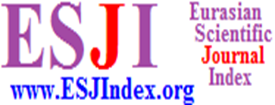Laysa al-Dhakaru ka-l-Unthā: A Comparative Analytical Study of Gender Equality and Islamic Justice in the Light of the Qur’ān and Urdu Exegetical Literature
لیس الذکر کالأنثی: قرآن مجید اور اردو تفسیری ادب کی روشنی میں صنفی مساوات اور عدلِ اسلامی کا تجزیاتی مطالعہ
DOI:
https://doi.org/10.1234/1r22g151Keywords:
Islamic Justice, Gender Equality, Urdu Exegesis, Male-Female Distinction, Women in IslamAbstract
This research paper critically examines the notion that Islam promotes male superiority over women, a perception often endorsed by modern liberal thought. It addresses claims that Islamic rulings on inheritance, testimony, and marriage grant men more rights and place women in a subordinate position. The paper argues that these interpretations reflect a partial understanding of Islamic teachings, which emphasize justice, balance, and complementarity rather than superiority or rivalry. Using the verse Laysa al-Dhakaru ka-l-Unthā (“The male is not like the female”) as its foundation, this article explores how Qur’ānic teachings and Urdu tafāsīr (exegeses) highlight areas of both gender equality and distinction, not discrimination. The article points out that Islam acknowledges the natural differences between men and women while granting them equal spiritual, moral, and social worth. It further demonstrates that in several religious matters—such as reward for deeds, moral accountability, and purity laws—Islam treats men and women equally. In other areas like childbirth, menstruation, and certain exemptions in rituals, women are given compassionate allowances. These differences are rooted in divine wisdom and human nature, not inequality. Ultimately, the article concludes that Islam offers a holistic system in which men and women are partners, not opponents. Their respective roles are tailored to their natural dispositions, ensuring social harmony and individual dignity. The misinterpretations that promote the idea of inequality stem from taking isolated injunctions out of their broader ethical and spiritual context.
Downloads





































